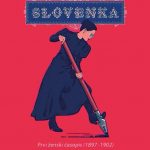 Central Europe Seminar Series: UCL School of Slavonic and East European Studies (SSEES), London (Web)
Central Europe Seminar Series: UCL School of Slavonic and East European Studies (SSEES), London (Web)Time: 08.12.2020, 19:00 Uhr
Venue: virtual space, via London
At the turn of the twentieth century, Trieste was the Habsburg Monarchy’s most important port city and the site of a fierce national struggle between Slovenes and Italians. From 1897 to 1902, the first Slovenian women’s newspaper Slovenka was published in Trieste and its first editor, Marica Nadlišek, was at the centre of an extensive social and intellectual network spanning the Slovene, Habsburg and South Slavonic worlds.
Slovenka was at the margins of the national movement, yet it became a focal point of Slovene feminism and women’s pan-Slavism. The outbreak of war in 1914, along with the subsequent collapse of the Habsburg Empire and the rise of fascism, decimated intellectual circles in Trieste. Those Slovene women who decided not to emigrate to the Kingdom of the Serbs, Croats and Slovenes (later Yugoslavia) had to give up their feminist and political ideals and devote themselves to national defence work in hopes of mitigating the consequences of fascism and forced italianization of the Slovene population.
Register via Zoom (Link).
Marta Verginella is a professor for European History of the 19th Century and Theory of History at the Department of History, University of Ljubljana (Web). She is an expert for the First Women’s Movement in the Habsburg Monarchy. 2020 she published the monography „Slovenka. Il primo giornale femminile sloveno (1897-1902)“ (Link).
Source: Facebook
